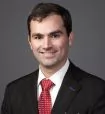On September 21, 2017, the U.S. Equal Employment Opportunity Commission (EEOC) filed a status report with the U.S. District Court for the District of Columbia in response to that court's August 22, 2017, ruling against the EEOC's 2016 wellness program regulations. As a reminder, the EEOC regulations sought to clarify whether participation in a wellness program was "voluntary" under the Americans with Disabilities Act and the Genetic Information Nondiscrimination Act of 2008. In the D.C. court case, the American Association of Retired Persons, Inc. (AARP) challenged the EEOC regulations on the basis of the "voluntariness" of the 30 percent incentive limitation. The court held that the EEOC did not provide a reasonable explanation as to why the incentive limit of 30 percent of the cost of coverage rendered an employee health program voluntary rather than involuntary. Rather than vacating the EEOC regulations at that time, the court remanded them back to the EEOC for further consideration.
According to the status report, the EEOC intends to issue a notice of proposed rulemaking by August of 2018 and issue a final rule by October of 2019. Notably, the EEOC indicates in a footnote that, in order to give employers time to come into compliance with a new rule, any substantively amended rule on wellness programs would likely not be applicable until the beginning of 2021. Additionally, the EEOC notes the possibility that, pending the success of any presidential nominations, its composition may change significantly before any new regulations are issued.
Because the 2016 EEOC regulations still are effective, and, according to the EEOC, employers likely would not need to come into compliance with any new rules this decade, employers can continue operating their wellness programs in accordance with the 2016 EEOC regulations.
The content of this article is intended to provide a general guide to the subject matter. Specialist advice should be sought about your specific circumstances.



